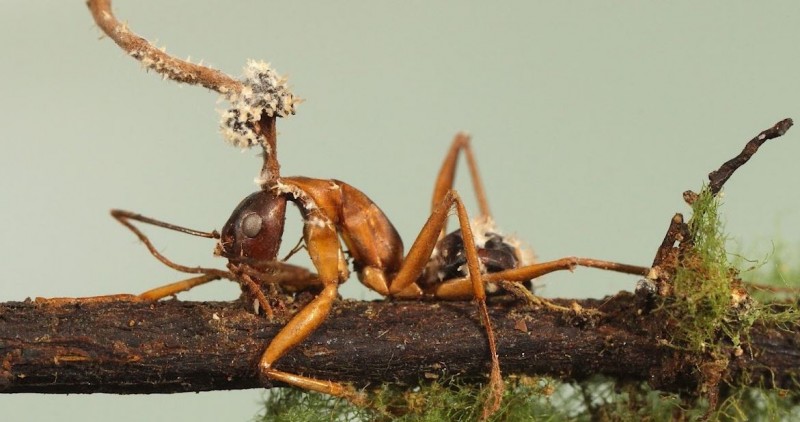
Have you ever heard of zombie ants? It may sound like a concept straight out of a horror movie, but in nature, there are actually fungi that have the ability to control the behavior of ants, turning them into mindless zombies. These parasitic fungi have evolved fascinating mechanisms to manipulate ants for their own benefit. In this article, we will delve into the intriguing world of zombie ants, exploring how these fungi work, their life cycle, and the impact they have on ant colonies.
1. Introduction
Zombie ants are not fictional creatures but rather victims of parasitic fungi that have the ability to take control of their hosts' behavior. These fungi, belonging to the genus Ophiocordyceps, are specialized parasites that target specific ant species. Through a series of intricate adaptations, they can manipulate ants to serve their own needs, ultimately leading to the death of the ant.
2. The Relationship between Parasitic Fungi and Ants
The relationship between parasitic fungi and ants is an example of a parasitic symbiosis. The fungi benefit from the ant's behavior, while the ant suffers the consequences. This interaction has been fine-tuned over millions of years of coevolution, resulting in a highly specialized relationship.
3. How Parasitic Fungi Infect Ants
When a spore of the parasitic fungi lands on an ant, it starts to germinate and penetrate the ant's exoskeleton. The fungus then grows inside the ant's body, feeding on its tissues. As the fungus matures, it releases chemicals that alter the ant's behavior and brain functions.
4. Manipulation of Ant Behavior
Once inside the ant's body, the parasitic fungi take control of the ant's nervous system. They manipulate the ant's behavior, compelling it to climb to an elevated location, such as the underside of a leaf. This behavior benefits the fungus by exposing its spore-producing structure to optimal environmental conditions for dispersal.
5. Life Cycle of Zombie Ants
As the ant reaches the elevated location, it attaches itself firmly to the leaf or twig. The fungus continues to grow inside the ant's body, eventually killing the host. Once the ant is dead, the fungus emerges from the ant's body, releasing a new generation of spores to infect other unsuspecting ants.
6. The Impact on Ant Colonies
The presence of parasitic fungi can have a significant impact on ant colonies. Infected ants become a source of infection for their nestmates, leading to a higher prevalence of the fungi within the colony. This can weaken the overall health and productivity of the ant colony, potentially affecting its survival and reproductive success.
7. Evolutionary Significance of Zombie Ant Fungi
The ability of parasitic fungi to manipulate ant behavior and control their actions has evolved as an adaptation for their own survival and reproduction. By using ants as hosts, the fungi ensure the dispersal of their spores to new environments, increasing their chances of finding suitable hosts and continuing their life cycle.
8. Interactions with Other Organisms
The relationship between parasitic fungi and ants is not limited to their direct interaction. Other organisms, such as bacteria and other fungi, can also play a role in this complex system. The interactions among these different organisms further shape the dynamics and outcomes of the parasite-host relationship.
9. Research and Scientific Discoveries
Scientists have been studying zombie ants and their parasitic fungi to better understand the mechanisms of infection and manipulation. Through advanced techniques, researchers have revealed intricate details about the genetic and chemical processes involved, shedding light on the fascinating world of parasitic fungi.
10. Potential Applications and Future Studies
The study of parasitic fungi and their interactions with ants has potential applications in various fields. Understanding the mechanisms employed by these fungi could inspire new approaches in pest control, agriculture, and even medicine. Further research is needed to fully explore the possibilities and implications of these findings.
11. Conclusion
The phenomenon of zombie ants, controlled by parasitic fungi, showcases the intricate and complex relationships that exist in the natural world. Through the manipulation of ant behavior, these fungi ensure their own survival and reproduction. By studying and understanding these interactions, we gain insights into the mechanisms of parasitic symbiosis and the astonishing adaptations that have evolved over time.
India's Space Program Soars, ISRO Inspires Scientific Advancement